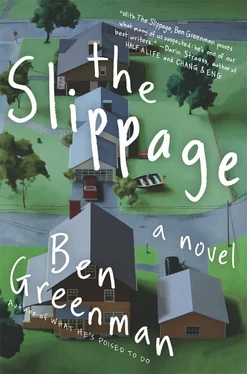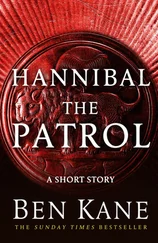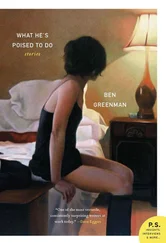“I heard a report on the radio yesterday where they said they don’t think Birch Mutual was linked to the rest.”
“Think about fire, though. There’s this absurd idea that it needs people to set it. It’s so much older than we are, so much more basic to the planet. We have our human creativity, but it pales in comparison to what fire does. It destroys other things and creates more of itself. We just move along in our boring lives, boring office jobs.”
“Yeah,” William said. “That’s where you’re wrong.”
Tom jerked his head up. “How do you mean?”
“I don’t have a job like that. Not anymore. I punched my boss.” He had Tom’s attention now. “The other day, one thing led to another. Isn’t that always how it goes?”
“Until it gets back to the Prime Mover,” Tom said. “That’s the thing that causes movement but is itself unmoved. But none of us is that. We receive one stimulus and produce another, and eventually it all adds up to life, or what people like to call life.” He seemed to feel the vanity of what he was saying and caught himself. “Does Louisa know?”
“Not yet. Officially I’m on leave. I’m waiting to hear my fate.”
“Well, she won’t hear it from me. But you know what they say. Amor tussisque non celantur .”
William took a stab at it. “Love and fighting can’t be hidden?”
“Love and a cough,” Tom said. “It’s Ovid. I think what he means is that wives have a way of finding out. Though it sounds like she’s a little inward these days, with all those thoughts of new houses dancing in her head. How long’s it been, a month?”
“Less.”
“In the course of a life, a month is nothing.” Tom produced a pen and started scribbling on a place mat: arcs, lines, loops. “Figure you live until seventy. That’s more than eight hundred months. If you graphed your life, you wouldn’t even see this. No one would. So don’t worry that it’s so consequential. Contextualization is the leading cause of endurance.”
“Makes sense,” William said. It didn’t, exactly. He didn’t know whether Tom was advising him to tell Louisa or not.
Tom folded the place mat and pushed it toward William. “Do you know how I got into graphing in the first place?”
William sensed something large about to surface. “I have to go,” he said.
Tom reached out for William’s shoulder. His hand held William in place. “I need something,” Tom said. “From you. A favor.”
“Is this the one from the barbecue?”
Tom blinked and then brightened. “Right,” Tom said. “That act of kindness has become a likelihood again. And this time I can tell you more. I need for you to be my wheelman.”
“For what?” William said. “Are we pulling off a heist?”
Tom didn’t answer. He was bent over his place mat again, scribbling madly. “There are three main shapes in a life,” he said. “The bell, the L, the whale’s tail.” William left him there, still scribbling.
When he got home Louisa was watching TV, and he watched with her, a decorating show where they scraped sticky wallpaper off a baby’s room and repainted it a pale green that even William had to admit was a huge improvement. “They said there are only seventeen kinds of patterns that can repeat,” Louisa said, and William, feeling a weight in his chest, didn’t answer. She got up to make them dinner, and he noticed that there was a red-brown hair on the sleeve of his shirt. He trapped it with a fingertip. It was human, but it wasn’t Tom’s or Louisa’s or Emma’s or anyone else’s he knew. It was proof of a world beyond him, of questions he would never be asked, and the thought of that allowed him, suddenly, to breathe.
There had been a few brief periods of unemployment in William’s life, but only one that had resulted directly from his actions. He had been a copywriter in a small advertising agency where he had a boss only a few years older than him, a slick former athlete named Frank who was married with kids and also running around with a redheaded secretary. (William couldn’t remember her name; Jessica?) Frank talked about “isolating what is wanted” and “finding the center of a product,” but mostly he just dumped his own work on William’s desk along with unreasonable deadlines. William accepted the situation with good enough humor at first, but one night he saw his boss and the secretary fighting in the parking lot. She was crying. Jenny. He reported the incident to the head of the company, and a week later Frank fired William. “I don’t know what you were thinking, guy,” he said. William felt he had struck a blow for truth or morality or fairness or something like that, and it took about six weeks before it all drained out of him and he saw that he’d been a damned fool. This time it was even quicker. The sense of righteousness he had felt as he squared his feet and shifted his weight had gone out of him the second he landed the blow on Hollister.
Instead, he was fidgety, angry at himself and at everyone else, too. He couldn’t tell Louisa yet, or at least didn’t want to, and her manner was discouraging him even further. After the party she said she was coming down with a cold, and she was, but even after recovering she remained in a state of steady insensibility. She was a thick gray brush overpainting all other colors. After a week in the gray he needed something brighter, and that need bloomed into flesh and blood in the form of Karla.
She was at lunch first, as always. This time she was unusually casual, in a T-shirt and a brown wraparound skirt.
“Sorry I was late,” he said.
“It happens,” she said. “It’s more or less the only thing that happens.” She didn’t seem angry. “Look,” she said, flashing her fingers in front of him. “I got my nails done. Aren’t you proud of me? It’s because I have a date.”
“That’s nice,” he said.
“I suppose it is. It never hurts to know that things are about to start happening again.”
“Who’s the guy?”
“A historian. He has a specialty.” A newly done finger went to her mouth to help her retrieve it. “He studies why there’s an uneven pace of scientific discovery across the history of civilization. I don’t think much will come of it, honestly, but I can probably get in a good six weeks before I realize that. And how about you?”
“How about me what?”
“Well, the house, for starters. Are you building?”
“Not yet. Louisa thinks I’m stalling. And I think she might be right.”
“That can’t go on forever.”
“I don’t need forever. I need forty years, probably. Then it’s moot.”
“What are you waiting for?”
William drew a breath and then lobbed his confession into the conversation. “I lost my job,” he said, “or I’ve set the wheels in motion, anyway. And I’m sleeping with the woman across the street.”
Karla’s eyes widened at the first and narrowed at the second. “Superstar,” she said, nodding on the first syllable. “Tell me more.” He pulled down the screen and started the projector. Certain scenes were edited; he didn’t mention, for example, that Emma was pregnant. Others were reframed for close-up. Hollister’s nose, he said, almost shouted with blood; he opened his fingers wide on both hands to re-create the effect. “I don’t want to say I regret anything, exactly,” William said. “The guy at work is impossible. She’s beautiful. This is the natural conclusion for both. But I’ll probably be back at work next week. And Emma and I are ending things. Things are winding down.”
A little smile rippled across her lips. “Right.”
“Do you remember once, when we were going out, you said something about how wrong choices were like water that’s so deep you can’t find the bottom?”
Читать дальше












